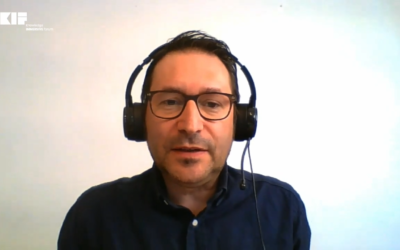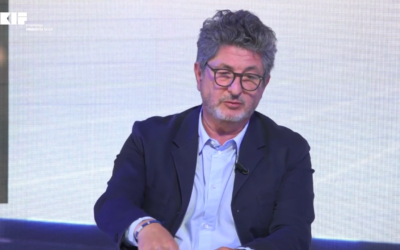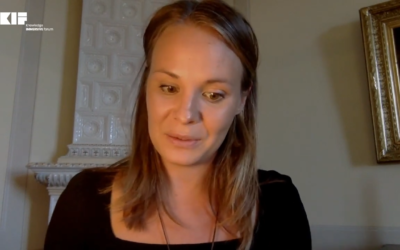Thomas Riedel : Basically you start learning when you get born, right ?
And basically I was the child of a florist. So when I was five years old, I was already, you know, in the shop of my father, and I remember clearly how I started learning there.
My father told me : “when you see that the client is ready and has paid for the flowers and it’s on the way to the door, you need to be at the door already, hold it and say thank you, goodbye.”
And this is still in my memory. And somehow, because of being the child of someone running a business, obviously it was a given that I’d also have my business.
When I was 14 then, I started, it was magic, and I worked as a magician. That was in Germany, in Wuppertal where I was born. And funny enough, I’m still there. Even so I’m traveling a lot globally – not now, but usually.
And this magic then got me onto stage, and stage needed technology, and that’s… step by step, I got into more technology.
And when I finished school, in fact – even a little bit before that because I wasn’t too interested in school – I started a real business with light and sound equipment and I got involved in an event where radios were needed, like walkie talkies. And I bought some of these walkie talkies and, you know, rented them out.
And then five radios grew to 5500, 5000. And, you know, over only a few years, I became the largest rental company in events in the world, which was really interesting. We still do that as well, so we have 40,000 radios, do things like Olympics and Formula One. But out of that, things have developed into other areas.
Alexandre Michelin : When we see those pictures, this is the things you are producing, helping to produce. What is your role in that ?
Thomas Riedel : Absolutely, it’s different type of roles. So if you look at Formula One for instance, there’s still lots of communications technologies between car and the pit and race control and to make people talk to each other.
But transmitting voice also gets you to the point to transmit audio and video and data. And when you have data and you start doing something with the data and like, you know, if we have something tracking information of a car, you can start doing something else with that.
And these days, people talk about, well, you want to have a real race car on the track and you want to have a virtual guy running a race car as well. Or better said, a real guy running a virtual car, and that runs based on that data.
Alexandre Michelin : So you are the center of this transformation. On one side, you have technology, then you have data and you have your events and you’re building a new magical event, mixing all ?
Thomas Riedel : Well, I wouldn’t say we are the center of that, but I feel we are all in that center of this transformation, because that’s what we all share. It’s a time of transformation going to more digital. But we need to keep in mind that we are all analog. And so it’s a given that if we don’t want to be replaced by a digital world, we’re talking about a hybrid here.
So that’s one of my messages all the time that I say, you know : “keep in mind the technology needs to be a tool and we are not doing technology for the sake of technology, but really need to do it as a tool and we shouldn’t be scared of it.”
You know, also on that, I typically say “look, I never studied anything, I can deal with the technology. If I can do that, anyone can do that as well”.
Présentateur : Alexandre Michelin (Fondateur KIF Festival)
Intervenant : Thomas Riedel (CEO de Riedel Communication)



